Khamenei Man’s Son Sentenced To 3 Years For Iran Criticism
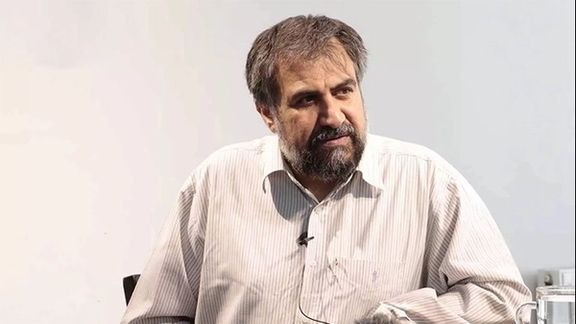
The Special Clerical Court in Shiraz sentenced Shahabeddin Haeri Shirazi, the son of the city’s former Friday Prayer Imam, to three years in prison.

The Special Clerical Court in Shiraz sentenced Shahabeddin Haeri Shirazi, the son of the city’s former Friday Prayer Imam, to three years in prison.
Haeri, who has expressed criticisms against the leadership of Ali Khamenei, the Supreme Leader of the Islamic Republic, took to his Telegram channel to inform followers that he appeared before the Special Clerical Court on Saturday, receiving a three-year prison sentence.
The charges against Haeri Shirazi include "spreading falsehoods against Ruhollah Khomeini, founder of the Islamic Republic" resulting in a two-year imprisonment and a fine of 150 million rials (approximately 300 dollars). Additionally, he is accused of "engaging in propaganda against the system," leading to another one-year prison term.
The Special Clerical Court also imposed restrictions on Haeri, preventing him from participating in online activities for three years and blocking his Telegram channel, deeming it an "instrument of committing a crime."
Shahabeddin Haeri Shirazi is the son of Mohiyeddin Haeri Shirazi, a cleric who held the position of Representative of the Supreme Leader in Fars Province and Friday Prayer Imam of Shiraz for 27 years, appointed first by Ruhollah Khomeini and later by Ali Khamenei.
During some years of his father's leadership, Shahabeddin took on the role of the representative and Friday Prayer Imam in Shiraz. However, in recent years, he has been critical of the role of Ruhollah Khomeini in the early stages of the Iran-Iraq War and has voiced concerns about the governance style of Ali Khamenei.

In September, Iranian state television shut down its Jam-e Jam channel, designed to convey the Islamic Republic's message to millions of expats in the diaspora.
The closure, largely overlooked by Iranian media and officials, underscored the regime's struggle to propagate its ideological messaging among Iranians who had emigrated to avoid exposure to such totalitarian and biased content.
Saeed Fanian, a former manager of Jam-e Jam, contends that the channel's shutdown highlights the breakdown of the state television organization's monopoly on TV broadcasting. He specifically pointed the finger at Vahid Jalili, the deputy chairman of IRIB (Islamic Republic of Iran Broadcasting), for lacking the necessary expertise to lead the channel.
Fanian also criticized IRIB Chief Peyman Jebelli for failing to fulfil promises to restore the broadcaster's credibility. According to Fanian, a successful television program should challenge authorities and convince the audience of its fairness -- elements he believes the state TV failed to achieve.
Fanian, an Iranian academic headed IRIB's newsroom from 1988 to 1994 and the Jam-e Jam channel from 2003 to 2009. He believes that the state television launched Jam-e Jam to confront the influence of foreign-based satellite television channels which were new in the Iranian media landscape in the 1990s.
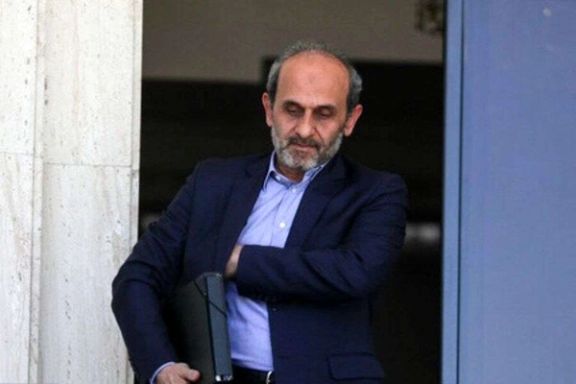
However, with the proliferation of more foreign-based professional Persian networks after 2009, the channel lost its appeal for expatriates, who appreciated the transparent political slant of the foreign-based networks. The viewership of Jam-e Jam's three channels for Europe, US and Australia began to drop and during the past years only one of the three channels were beaming to Europe and parts of the United States. However, even Iranian officials admitted that very few Iranian expats tuned to Jam-e Jam for news or entertainment.
Toward the end of its lifetime as hardliners at home pushed their radical cultural policies, the channel stopped broadcasting Iranian music which was more or less the only interesting program on Jam-e Jam after 2009. On the other hand, the channel did not have anything to offer to Iranians who became increasingly politically minded after the disputed presidential election in 2009 and particularly with the start of major protest demonstrations in 2017. There was no trace of the protests and dissent in general on the channel whatsoever.
It was around the same time that major foreign-based channels including Iran International, BBC Persian and Manoto TV began to offer more programming on Iran's domestic politics and hot issues such as human rights violations in Iran. They catered to the needs of Iranians inside and outside of the country for accurate and unbiased information about events in the country.
In his interview, Fanian admitted that Jam-e Jam was somewhat successful before these channels appeared on the Iranian media landscape. While he still believes that Jam-e Jam's winning edge toward the end of its activity was broadcasting Iranian TV sitcoms, a recent report on Kahabr Online website indicates that the state TV lost its edge as online platforms in Iran started to produce their own series with less radical censorship.
A study cited by Khabar Online reveals that despite the state TV's monopoly on broadcasting and its extension of censorship to video-on-demand (VOD) services, TV series produced by the state were significantly less successful than those offered by VOD platforms. Notably, even though state TV provided its content for free, VOD series such as "Fatal Wound" and "Return" had nearly double the viewership of all state TV series combined. Another example is the comedy series "How Many Springs There Are in A Lifetime," which has maintained successful viewership on VOD platforms for over five months.
The decline in viewership extends to both news programs and entertainment shows on state TV and its Jam-e Jam channel, losing audiences to online platforms within Iran and foreign-based satellite television channels. Polls conducted domestically and internationally corroborate the substantial drop in state TV viewership. As a result, the government may find it increasingly difficult to justify investing funds in a propaganda machine that has lost its efficacy.
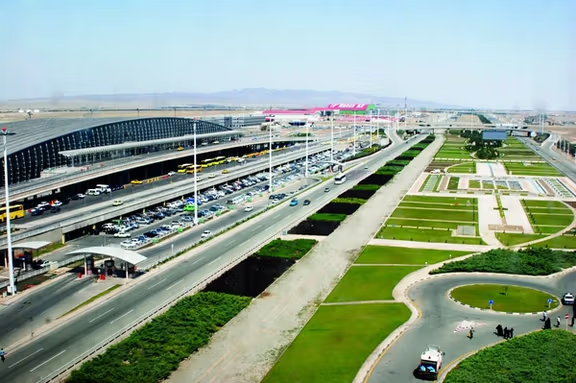
Amid ongoing economic crisis, Iran has revealed an expansion plan for its main international gateway in Tehran, with the construction to be awarded to the Revolutionary Guard.
Iran's Minister of Roads and Urban Development, Mehrdad Bazrpash, declared on Saturday that China is set to invest €2 billion in the construction of the second phase of Imam Khomeini International Airport.
Bazrpash urged private sector companies to collaborate in the implementation of this substantial project.
The first phase of IKIA's development, according to him, with a budget of $500 million, is scheduled to become operational in March 2025.
Bazrpash further asserted that a Chinese company would contribute over €2 billion for the completion of the second phase's construction.
Earlier statements from Saeed Chalandari, the CEO of IKA (Imam Khomeini Airport Company), revealed that the construction contract was signed with an undisclosed Chinese company after negotiations with various domestic, and international contractors. However, IRGC officials said on Saturday that their construction company will be the main builder.
However, the backdrop of this development is accusations against several Iranian airlines, including Mahan Air, linked to the Islamic Revolutionary Guard Corps (IRGC). The airlines have faced bans from countries such as the US and France, for their alleged involvement in transporting military equipment and personnel to conflict zones in the Middle East.
Despite a touted 25-year strategic partnership agreement between China and Iran, Tehran has found itself somewhat excluded from Beijing's Belt and Road Initiative and other regional investments, largely due to US sanctions. Notably, China has only inked two investment agreements with Iran from 2013 to 2023, and one of them was canceled in 2018 when the United States withdrew from the JCPOA nuclear agreement with Iran.
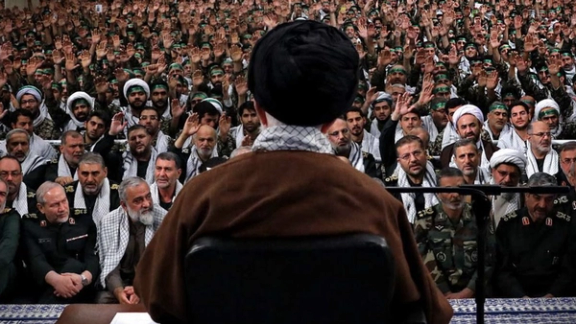
A prominent Iranian lawyer has argued that the dominating role of the hardliner Paydari Party is likely to hinder the legislative system and the Constitution.
In a recent commentary, Iranian lawyer Kambiz Nowrouzi referred to a statement made by hardline cleric Morteza Aqa-Tehrani, the chairman of the central council of Paydari Party. Aqa-Tehrani recently quoted the party's founding father, Ayatollah Mohammad Taqi Mesbah-Yazdi as having called for the nation's absolute obedience to Supreme Leader Ali Khamenei.
Aqa-Tehrani had quoted Mesbah as saying, "The absolute rule of the jurisconsult (Velayat-e Faqih) is not enough as the theory of government under the Islamic Republic. The system also needs absolute obedience of the people to the supreme leader."
The statement effectively renders the legislative system in Iran meaningless. According to the ultraconservative party, Khamenei can make any decision, and the people will have no choice other than obeying what he decrees.
Practically, during the past decade, Khamenei has been running the country in the same way, without elaborating on the underlying principle of the system. He effectively made the parliament obsolete by handing over key decisions on issues such as the annual budget to the heads of the legislative, executive and judiciary powers.

In 2019, when a fuel price rise led to a nationwide uprising, the parliament said that it was not consulted, and Khamenei had handed over decision-making on the matter to the heads of the three powers of the government. However, at least one of the trio, former President Hassan Rouhani said he was not involved in the price rise decision either and that he learned about it like everyone else, in the morning after the decision was implemented.
The idea of absolute obedience is based on another verdict by late Ayatollah Mesbah, a Muslim fundamentalist, which maintains that the Supreme Leader, currently Khamenei, is not elected by the people. He is appointed by God almighty!
Elsewhere, Mesbah said, "If there have been elections in Iran so far, that is because that is because the leader has so decided. However, the leader can announce another form of government that does not need people's input." He added that "The people's vote has no impact on the legitimacy of the government." He even said: "Who are the people to decide on the affairs of the state?" Nonetheless, his followers later tried in vain to interpret his words differently.
In his commentary, Nowrouzi pointed out that the Iranian Constitutional Law has stressed on the importance of the people's vote in several instances, including in Article 56 which stipulates that "The absolute ruler of the world and man is God, however, God has decided that man should be in charge of determining his own fate." The article adds that "No one can deprive man of this divine right or take advantage of that right in the interest of a certain group or individual."
Nowruzi further pointed out that "This article makes man unconditionally in charge of determining his own fate," adding that "This article is the foundation of national sovereignty.”
The lawyer also pointed out that Article 6 of the Iranian Constitution also says very clearly that "In the Islamic Republic the affairs of the state should be run based on public votes by electing the President, members of the parliament, members of city councils and so on, or based on referendum in other cases."
He further pointed out that this means the people are free to run the affairs of the state based on their free will and votes, and this is in sharp contrast to the idea of absolute obedience. The lawyer also claimed that both Khamenei and his predecessor Ruhollah Khomeini publicly opposed the idea of absolute obedience to the leader.
Nowruzi argued that the Islamic Republic is based on the two pillars of Islamism and Republicanism. If you do away with one of the two pillars, the system will collapse.

What if a Sunni imam plays a central role in advocating for freedom in a Shia-majority country ruled by Shiite clerics and gains significant traction.
It may seem unlikely, especially in a country like Iran with a hostile regime. While suspicions about Iranian imams being conservative and reactionary are understandable, Mowlavi Abdolhamid (Abd ul-Hamid), a Sunni cleric in southeastern Iran, challenges these stereotypes. Contrary to the image of a radical jihadist, Abdolhamid seeks peace, an end to bloodshed, and has attracted fellow Iranians with his message.
If Iran’s ongoing revolution leads to the establishment of a secular government, promoting religious freedom, women’s rights, and ending the murderous mistreatment of religious and ethnic minorities, one of its influential figures could be Sunni Muslim Abdolhamid. In fact, a Sunni Muslim is playing a central role in undoing the catastrophe of the 1979 Islamic revolution in Iran.
Thousands of Iranians of diverse backgrounds flocked to his mosque, Makki, in Zahedan (capital of Sistan-Baluchestan province, southeast of Iran) in March 2023 to celebrate the Iranian new year (a secular celebration) and to hear his message of hope and resistance. Abdolhamid stands out as a cleric who is both hated by the current ruler Ali Khamenei and immensely popular among the Iranian people. Despite being a member of the Sunni minority, he is increasingly more popular and has become a symbol of an Iranian renaissance. Despite efforts to tarnish his reputation, leaked documents reveal Khamenei's advice to ruin Abdolhamid's standing has not diminished his popularity.
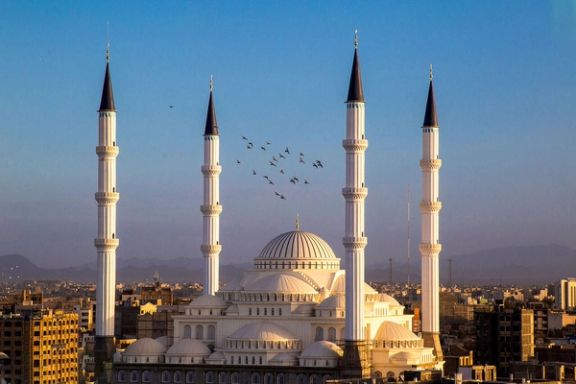
According to Abdolhamid's office, the security forces of the Islamic Republic have been pursuing the assassination plot of this staunch mowlavi who has been defending of the rights of all Iranian citizens. Abdolhamid was one of the many Iranian Sunni imams in Shia-governed Iran who supported the ongoing uprising that began with the death of Masha Amini in September 2022. Abdolhamid has been repeatedly attacked by the authorities and the propaganda horns of the government, his assistants were prosecuted and jailed, and his loyalists were shot at.
Abdolhamid has notably broken traditional Shiite clerical taboos, such as welcoming women without hijab to his mosque during Iranian New Year travels and advocating for the equal rights of Baha'is and non-believers. His outspoken criticism extends to blaming Khamenei for the deaths of approximately 100 protesters in Zahedan on September 30, 2022, condemning the shooting of protesters, executing dissidents, and addressing issues of torture and rape in prisons.
A noteworthy outcome of the 2022 revolution is the participation of Iranian Sunni clerics in the national, secular, and freedom-oriented movement alongside the people. Unlike adherents of the Shiite political theory of governance and its sectarianism, Sunni clerics, particularly those aligning with the religious sentiments of their regions, swiftly joined the protesting masses. Abdolhamid, the imam of Zahedan's Makki Mosque, stands out due to his clear articulation of the general demands of the people in Sistan-Baluchestan and across Iran.
Abdolhamid's consistency in his positions, including abandoning previous stances, has garnered him popularity among protesters and regime opponents. Notably, he revisited past positions like congratulating the Taliban and supporting Ebrahim Raisi in the contested elections of 2021. Every Friday, during his leadership of prayers in Zahedan, Abdolhamid aligns himself with the positions of the protesters.
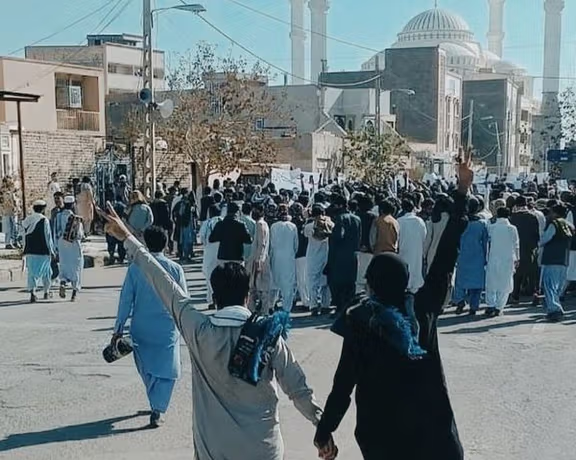
Paths to a world without Islamism
Following the onset of the Mahsa Revolution, Abdolhamid emerged as a staunch opponent of sectarianism and Islamism within the government. He guides Muslim believers toward the separation of religion and state. One path is to normalize and recognize intellectual and ethnic diversity in the Iranian public arena. "Religious views cannot create equality in this intellectual and ethnic diversity. The religious view in the country will eventually fail," he says.
Focusing on government efficiency, he rightly points out the ineffectiveness of the Islamist government due to Islamist politics. He clearly identifies Islamism as responsible for the current failed state of governance: "What happened in Iran was due to a denominational view; denomination is a branch of religion. Denomination means a narrow perception and religion has a wider circle. The denominational view became dominant in Iran, and limited the view and opinion and limited the plans.” In this speech, he refers to Islamism as a [political] religion.
Abdolhamid highlights the contradiction between Islamism and meritocracy. He is well familiar with the dimensions and results of the anti-secular government in this area. From his point of view, the root of this ideological selection is the idea that the government represents God. "No one can claim to be God's representative," he argues.
He firmly opposes the involvement of clerics in governmental affairs and decision-making processes. Abdolhamid contends that the country's challenges and protests cannot be addressed solely through lectures and sermons by preachers, or eulogists. Instead, he emphasizes the necessity of thoughtful minds, and experienced and compassionate individuals to tackle these issues.
Abdolhamid advocates for the legal equality of all citizens, rejecting notions of "insiders" and "outsiders," as well as ideological and political supremacy within a patriarchal system. He underscores the idea that all Iranians are citizens of Iran, united as brothers and sisters, transcending sectarian distinctions. Abdolhamid dismisses concerns about differences between Shiites and Sunnis, asserting that there are no such distinctions, and emphasizes that all Iranians, regardless of ethnicity, aspire to enjoy equal rights.
Public education about secularism
Similar ideas have been articulated by Iranian political activists and analysts, both within and outside the country, for years. However, hearing these sentiments from a Sunni Friday Imam, who enjoys popularity not only among the Baluchis but also among Sunni Kurds, and others is particularly noteworthy. Abdolhamid's influence extends to religious individuals opposed to the government. Since the Mahsa Revolution, he has skillfully primed the minds of millions of Sunni believers to embrace secularism. While he may not explicitly use the term "secularism," he has gradually preached and elucidated the dimensions of this concept.
Failure of Shiite Reformist clerics
No Shiite cleric in the social and religious position that Abdolhamid enjoys has defended secularism to such an extent, including former ‘reformist’ president Mohammad Khatami and other “progressive” clerics.
These reformists do not believe in the separation of religion and state because they want reforms for the survival of Islamist government and religious rule and their own return to power, and not for a secular system of government.
Abdolhamid, a thorn in the government's throat
The government faces significant challenges in attempting to remove Abdolhamid, and such an action would come at a high cost for several reasons: 1) it would be difficult to close Friday prayers for a government claiming religious legitimacy, 2) he enjoys support from Baluch believers and leaders of Baluch clans and tribes, 3) the potential for a high cost in terms of security and potential backlash, as witnessed in the September 30, 2022, massacre, and 4) the resilience of the Baluch people for more than year of opposing the regime, gaining solidarity with other Iranians.
Today, Abdolhamid has garnered popularity among Iranians due to his ability to understand and echo the sentiments and demands of the majority of freedom-loving and secularist Iranians, despite being a traditionalist cleric. Any attempt to impose house arrest, terror, or exile, as used against opposition leaders in border regions, would pose considerable risks for the regime, especially when public sentiment is largely against the government.
The opinions expressed by the author do not necessarily reflect the views of Iran International.

Iran's interior minister denies having authorized hijab enforcers at the capital’s subway stations, claiming they are “citizens’ groups” carrying out a religious duty.
Photos emerged on social media on Saturday that showed black-veiled women forming a human tunnel, which many now refer to as ‘tunnel of horrors’, at one of Tehran’s main subway stations to make sure women wear proper hijab. Similar surveillance and enforcement have also been reported at other stations.
Since May, the capital’s subway stations have been the battleground of women who are against compulsory hijab and various hijab enforcers as well as some ordinary citizens who consider it their duty to force others to abide by the rules.
The women who wore green shoulder sashes with the words “guidance ambassadors” written on them stopped women who were not wearing headscarves to admonish them for breaking the compulsory hijab rules.
Responding to reporters’ questions on the topic after the weekly cabinet meeting on Wednesday, Interior Minister Ahmad Vahidi declared that citizens’ groups were only carrying out ‘amr-e be marouf' for which everyone is responsible.
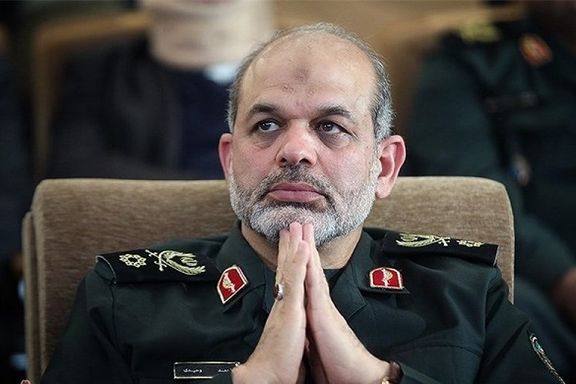
The phrase refers to a pious Muslim’s duty to urge others to avoid forbidden deeds and carry out what conforms with religious rules.
“We have not issued any particular permits for [their work],” Vahidi who is second in command of the police force after Supreme Leader Ali Khamenei, claimed while insisting that that all citizens have a religious duty to carry out ‘amr-e be marouf’ but this can only involve “nicely worded” verbal exhortation.
“Interesting! So, this tunnel of horrors at the metro is a citizens’ [initiative]!” Mostafa Faghihi, the managing director of the moderate conservative Entekhab news website tweeted Wednesday in reaction to Vahidi’s claim.
“Do people also pay their monthly salary? Are they also hired and organized under citizens’ supervision? No authorization required? How democratic and free!” Faghihi wrote referring to reports in August that Tehran municipality was planning to hire 400 uniformed hijab enforcers to deploy at subway stations of the capital.
Speaking to Faraz Daily news website, an official of the Tehran Metro Company had also earlier denied that that hijab enforcers are officially active in Tehran subway. Hadi Zand, head of international affairs and communications of Tehran Metro Company, told Faraz Daily that the company only has uniformed security personnel who are responsible for dealing with various issues including peddlers and ensuring the security of the subway system.
Many, including prominent reformist commentator Abbas Abdi, have raised objections to the deployment of ‘Hijab Patrols’ in Tehran’s subway stations, the police force’s use of CCTV to identify hijab infringers and recording their images.
In a commentary written for the reformist Etemad newspaper Tuesday, Abdi warned the authorities that that measures such as creating hijab enforcers “tunnels” in the subway corridors would only deepen the gap between the people and the authorities and increases public anger and hatred.
He also argued that introducing hijab enforcers as “guidance ambassadors” is unjustified because governments in the modern world are not mandated to guide people and the police is only responsible for establishing order. Hijab enforcers are municipality employees or police who act based on the orders they receive and get paid for their work like other employees, he said.